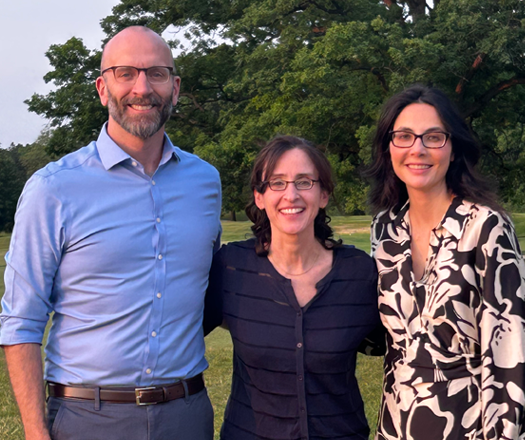JUNE 29, 2023
Author: Kelly Malcom
Diseases that affect the respiratory system are among the most common in the U.S., impacting millions of people with a diminished quality of life and life expectancy. To address this, Michigan Medicine has invested in training researchers within Pulmonary and Critical Care Medicine to understand how to better treat and prevent conditions such as COPD, asthma, and sepsis.
Integral to this effort has been the Multidisciplinary Training Program in Lung Diseases, which has been continuously funded by a T32 training grant from the National Institutes of Health since 1993. Now in its 30th year, the program has greatly advanced the field of pulmonary medicine and critical care.
“We recruit rising stars – both MDs and PhDs – from across the research spectrum: from molecular science to clinical and translational research to epidemiology, and provide them with mentorship, career development, and resources to help them develop into successful, independent researchers,” said program director Robert Dickson, MD.

Along with associate program directors MeiLan Han, MD, MS and Rachel Zemans, MD, Dickson joins 50 faculty mentors with an array of research interests providing scientific expertise and guidance in career development. Over the past decade, the program has trained 44 MD, PhD, and MD-PhD graduates, most of whom have gone on to have successful research careers.
Graduates of the Multidisciplinary Training Program in Lung Diseases have published in multiple top journals, with work that has improved the understanding of the mechanisms behind the development of lung diseases and helped to move basic and clinical research to medical practice and the improvement of population health through multidisciplinary approaches.
“We are more diverse than ever, both in terms of background and demographics as well as in terms of scientific areas of focus,” said Dickson. Recent areas of focus for the program include microbiome research, data science, advanced imaging, and health care disparities.
The program’s most recent application for renewal received a perfect score from the NIH reviewers, a reflection of its strength in recruitment, mentors, training plans, and resources afforded by U-M’s robust research enterprise.
“It’s hard to overstate how important our T32 training program was for my training. It provided me with the support, resources, and mentorship that I needed to launch my research career, and now I’m excited to pay it back by joining the mentorship team and supporting the next generation of trainees,” said program mentor Elizabeth Viglianti, MD, MPH, MSc, assistant professor in pulmonary and critical care medicine.



